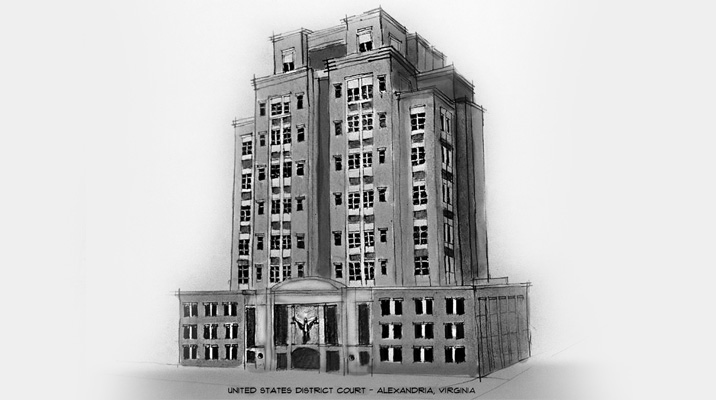Hoarding or charging excessive prices for precious medical supplies during a public health emergency can earn you social opprobrium but did you know it could send you to prison as well?
In our capitalist society, we don’t normally think of such things as charging inflated prices as criminal matters – your customers will punish you themselves by going to the competition. However, when the merchandise in question is medical supplies desperately needed for the fight against coronavirus, the normal rules do not apply.
A Brooklyn pharmacist recently became acquainted with this fact when NYPD officers and federal agents armed with search warrants seized thousands of medical masks from his vehicles and properties (the pharmacist has not been charged and is presumed to be innocent). The alleged offense listed in the warrants? Illegal hoarding and price gouging under the Defense Production Act.
In this post we take a look at a novel criminal offense being used to combat a novel virus. We discuss the heretofore seldom used hoarding and price gouging statutes, the government’s enforcement efforts, and possible defenses. Finally, we offer some brief thoughts on what those in the business of buying or selling the precious medical supplies can do to ensure compliance.
The Defense Production Act: Criminal Hoarding and Price Gouging Provisions
The source of law for criminal hoarding and price gouging is the Defense Producing Act. Congress passed the Act in 1950 with the intention of aiding the federal government’s mobilization for the Korean War. President Trump has relied on the Act to obtain supplies for the fight against coronavirus.
50 U.S.C. § 4512 codifies the Act’s provisions creating the crime of hoarding and price gauging. It is not a lengthy provision, so we quote it here in full:
In order to prevent hoarding, no person shall accumulate (1) in excess of the reasonable demands of business, personal, or home consumption, or (2) for the purpose of resale at prices in excess of prevailing market prices, materials which have been designated by the President as scarce materials or materials the supply of which would be threatened by such accumulation. The President shall order published in the Federal Register, and in such other manner as he may deem appropriate, every designation of materials the accumulation of which is unlawful and any withdrawal of such designation.
In making such designations the President may prescribe such conditions with respect to the accumulation of materials in excess of the reasonable demands of business, personal, or home consumption as he deems necessary to carry out the objectives of this chapter. This section shall not be construed to limit the authority contained in sections 4511 and 4554 of this title.
Any person who willfully performs any act prohibited, or willfully fails to perform any act required, by the provisions of this subchapter or any rule, regulation, or order thereunder, shall, upon conviction, be fined not more than $10,000 or imprisoned for not more than one year, or both.
Scarce Materials Designated by the President
- N-95 Filtering Facepiece Respirators
- Other Filtering Facepiece Respirators (e.g., those designated as N99, N100, R95, R99, R100, or P95, P99, P100)
- Elastomeric, air-purifying respirators and appropriate particulate filters/cartridges
- Powered Air Purifying Respirator (PAPR)
- Portable Ventilators
- Chloroquine phosphate or hydroxychloroquine HCl
- Sterilization services for certain medical devices and certain sterilizers
- Disinfecting devices and other sanitizing and disinfecting products suitable for use in a clinical setting
- Medical gowns or apparel, e.g., surgical gowns or isolation gowns
- Personal protective equipment (PPE) coveralls, e.g., Tyvek Suits
- PPE face masks
- PPE surgical masks
- PPE face shields
- PPE gloves or surgical gloves
- Ventilators, anesthesia gas machines modified for use as ventilators, and positive pressure breathing devices modified for use

The DOJ’s Hoarding and Price Gouging Task Force
This designation having been made, the Department of Justice is now empowered to prosecute hoarders and price gougers of these materials. On March 24, Attorney General William Barr issued a memorandum to all United States Attorneys creating a “hoarding and price gouging task force.” The memo describes the composition of the task force as follows:
The task force will develop effective enforcement measures, best practices, work closely with HHS as they designate particular items and equipment, and coordinate nationwide investigation and prosecution of these illicit activities. The task force will be led by Craig Carpenito, the United States Attorney in the District of New Jersey, with assistance as needed from the Antitrust Division’s Criminal Program. Each United States Attorney’s Office, as well as relevant Department components, are directed to designate an experienced attorney to serve as a member of the task force.
As you can see, the Task Force is designed to be a nationwide effort involving all 93 United States Attorney Offices and the Department of Justice. It is a significant law enforcement initiative and an important part of our Nation’s coronavirus response.
Defenses to Price Gouging and Hoarding
Aside from the case involving the pharmacist described above, we are unaware of pending Task Force cases that are purely about hoarding/gouging. Even the pharmacist named in the warrant does not seem to have been formally charged. However, there are undoubtedly many active investigations. If any of these investigations result in formal charges, what defenses my be available to those charged?
In answering this question, there are precious few reported cases to rely on as this statute has seldom been used. However, the text of the statute itself suggests several potential defenses. For example, how does the government prove what amount of, say, PPE, is “reasonable” for a person or business to possess during a world-historic pandemic? And what is exactly is the “prevailing market price” for such supplies? (the Antitrust Division’s involvement in the task force is certainly related to the need to answer these and other potentially complex economic questions).
It is also not immediately clear from the text what the government would have to prove about the defendant’s intent. Would the government be required to prove the defendant knew the materials he possessed had been designated as “scarce” by the President?
Hoarding/gouging charges may also be susceptible to a constitutional challenge. Federal criminal statutes are unconstitutional if they do not give fair notice of what conduct is prohibited. Such laws are “void for vagueness.” When it comes to price gouging/hoarding, how exactly is one supposed to know if the price of a mask is too high? Or that an inventory of rubber gloves is too large? We express no opinion on the merit of this argument here, but merely forecast that it may be an issue in an eventual prosecution.
The foregoing are just a few of the questions that would have to be answered in a hypothetical prosecution for hoarding and price gouging.
Other Prosecutions by the Gouging and Hoarding Task Force
Our observation that the Gouging and Hoarding Task force has thus far (to our knowledge) not brought formal gouging/hoarding charges does not mean it has been ineffectual. To the contrary, there have been several major cases against those dealing in the specified medical supplies involving charges of wire fraud and false statements. The underlying allegations in these cases are that the defendants selling medical supplies defrauded their customers (in some cases defrauding the government) or lied to investigators about their activities. While the facts of these cases are certainly unique to the current moment, the government’s legal theories are not new.
Importance of Compliance, Caution and Transparency – Seek Legal Advice
If you are involved in buying and selling designated medical materials, you should be careful to maintain compliance with the new enforcement environment. Acquaint yourself with the relevant laws and stay abreast of new developments and trends.
Above all, always be honest about your business activities – especially to law enforcement or other agents of the government. The old saying about the cover up being worse than the crime applies here. Perhaps your activities are the furthest thing from price gouging/hoarding – you are merely using your time and talents to engage in a legal business activity. However, if you lie to federal agents or your customers, you may expose yourself to charges of false statements or fraud. Honesty is the best policy.
Those involved in buying and selling of materials specified in the President’s executive order would do well to seek legal guidance if there is any doubt about prices or inventories. This is especially true if you have been contacted by law enforcement or regulators. If you have further questions, you may schedule a consultation with one of our attorneys.

